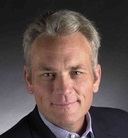By Bob Allen
One way to fix the troubled public-school system in Texas is making education funds available to church-based private schools, a group of prominent pastors including Ed Young of Second Baptist Church in Houston and Robert Jeffress of First Baptist Church in Dallas claimed in a recent brief to the Supreme Court of Texas.
The U.S. Pastor Council, a Texas-based group founded in 2003, but more recently known for opposing Houston’s controversial equal rights ordinance banning discrimination on the basis of sexual orientation and gender identity, entered another fray over education funding in a brief filed Aug. 18.
The brief asks the high court to uphold a final judgment in August 2014 by State District Judge John Dietz striking down the state’s current school finance system, saying the legislature failed to deliver its constitutional obligation to provide an “efficient system of free public schools.”
Many of the pastors in the coalition “are deeply involved in K-12 education” both through public and church-based private schools, the brief argues, and “therefore have a vested interest in addressing the profound issues threatening children’s education by the lack of affordable opportunity for choosing the best school for each child.”
The U.S. Pastor Council, the brief adds, “advocates for education reform that places both responsibility and opportunity in the hands of parents, demands academic and moral excellence of our youth and provides equal opportunity for those standards regardless of the socio-economic status of the family being served.”
“We support and applaud good public schools, of which there are many,” the pastors said. At the same time, “[w]e believe that parents have the God-given fundamental right to direct the education and upbringing of their own children.”
The brief says there is nothing in the state constitution requiring that an “efficient system of public free schools” must be operated solely by government employees. And excluding religious providers from the current system of public education “severely implicates religious liberty.”
“Is the exclusion of religious schools based on religious bigotry?” the brief asks, claiming there is no valid economic or educational reasons.
“Thus, the exclusion of religious schools for no valid economic reason demonstrates a religious bias and hostility and prevents the free exercise of religion,” the brief argues. “Declaring the current system inefficient and that an efficient system must include all qualified suppliers without regard to religion, will avoid the religious issue and clearly not violate the Establishment Clause.”
 Pastors for Texas Children, a two-year-old organization started by longtime Texas Baptist pastor Charles Foster Johnson, reacted with dismay that “some local church leaders continue to push for the diversion of public funds for their private, religious schools.”
Pastors for Texas Children, a two-year-old organization started by longtime Texas Baptist pastor Charles Foster Johnson, reacted with dismay that “some local church leaders continue to push for the diversion of public funds for their private, religious schools.”
Dan Quinn, communications director at the Texas Freedom Network, said the U.S. Pastor Council brief twists and redefines “religious liberty” so much that “the term itself is in danger of becoming almost meaningless.”
“If tax dollars aren’t funneled into sectarian schools, somehow that’s a violation of religious freedom,” he summarized the argument in an interview with Welton Gaddy on State of Belief Radio Aug. 29. “That just sort of turns religious freedom on its head.”
The brief was filed pro bono by attorney Briscoe Cain. Cain, who lives in the Houston area, is running for state representative with endorsements including retired appeals court judge Paul Pressler, a key figure in the “conservative resurgence” in the Southern Baptist Convention in the 1980s and 1990s.
It is filed on behalf of The U.S. Pastor Council, which claims support from over 1,000 churches committed “to address social, cultural, policy and justice issues of concern from a Biblical perspective,” and its Texas leadership, also known as the Texas Pastor Council, representing some of the state’s largest churches, including Hyde Park Baptist Church in Austin, led by Senior Pastor Kie Bowman.
Johnson, who serves as pastor at Bread Fellowship in Fort Worth, Texas, launched Pastors for Texas Children both as a ministry to local schools, principals, teachers, staff and schoolchildren and as an advocacy group supporting public education and social justice for children.
“We now have over 1,100 signed pastors, ministers, lay leaders and educators to help in the fight to support our neighborhood public schools,” Johnson reported in a recent update.
